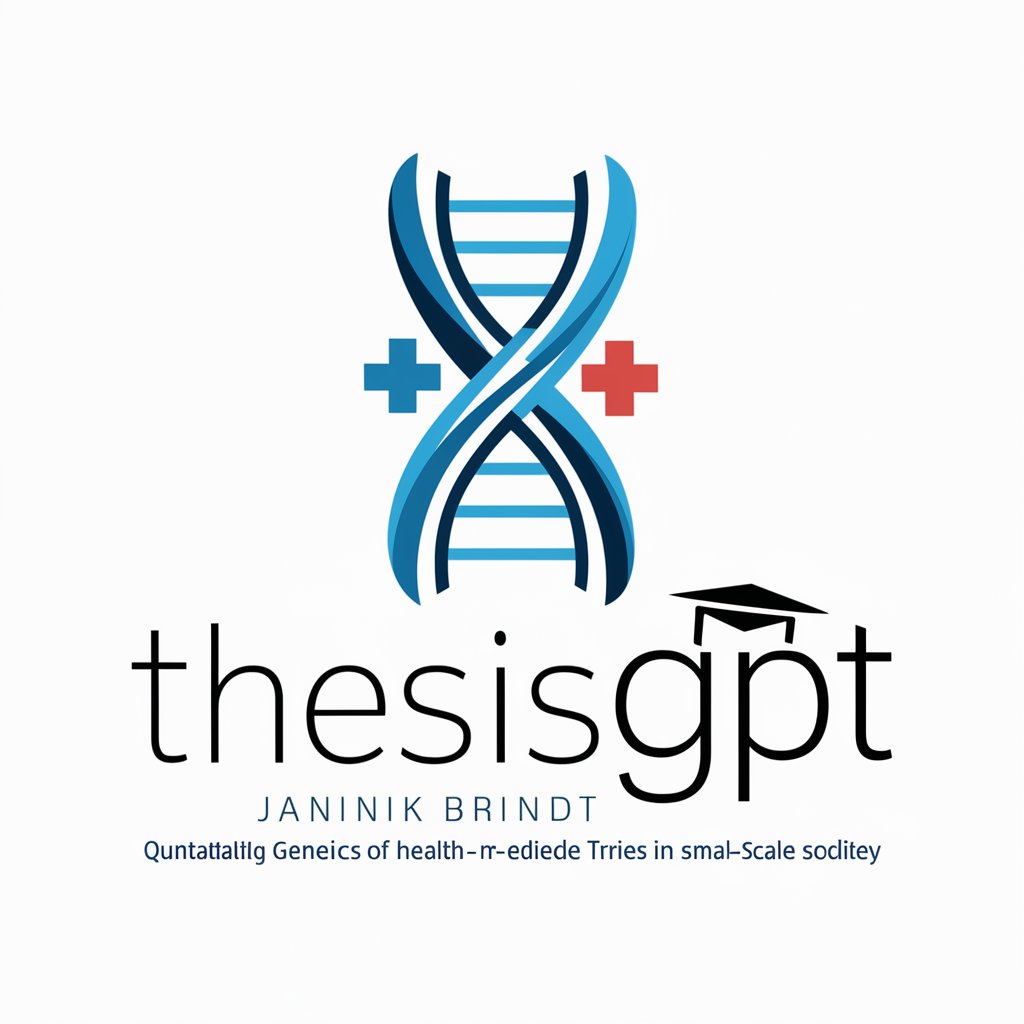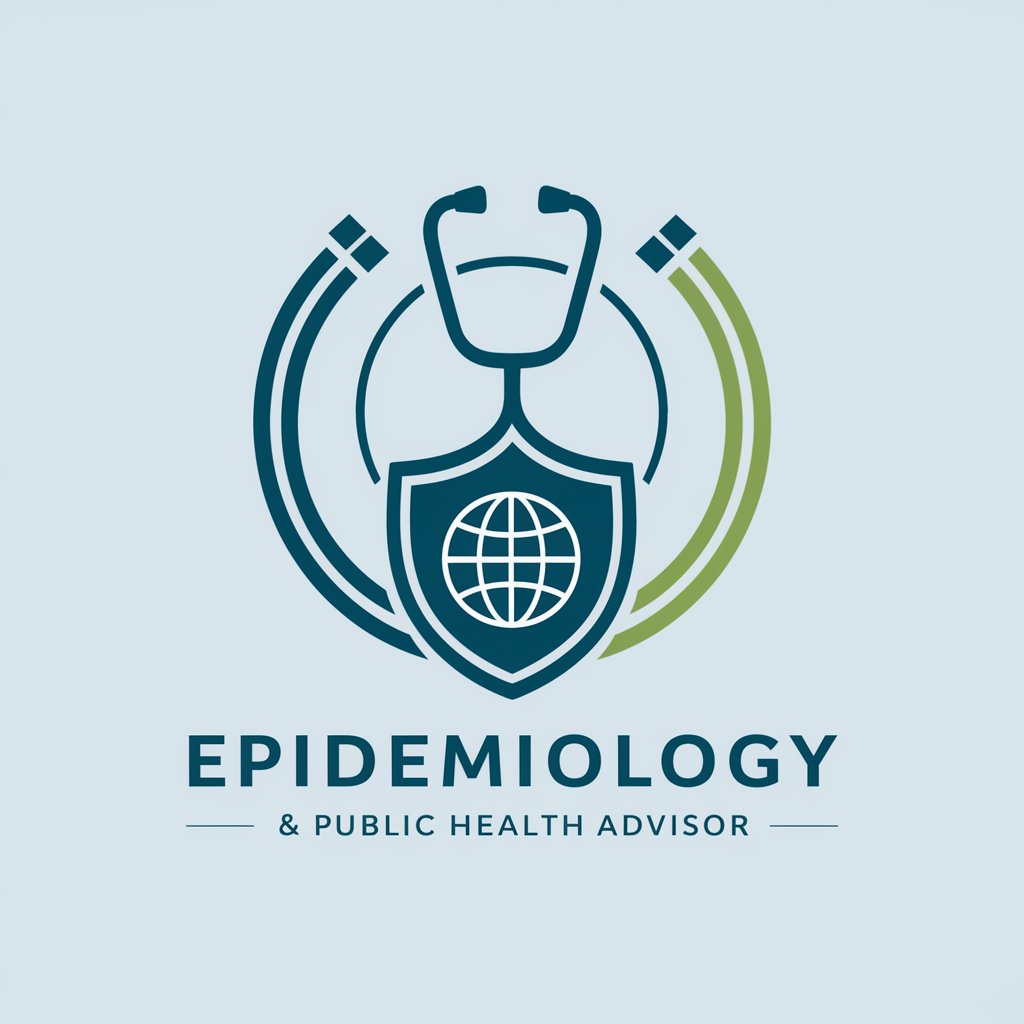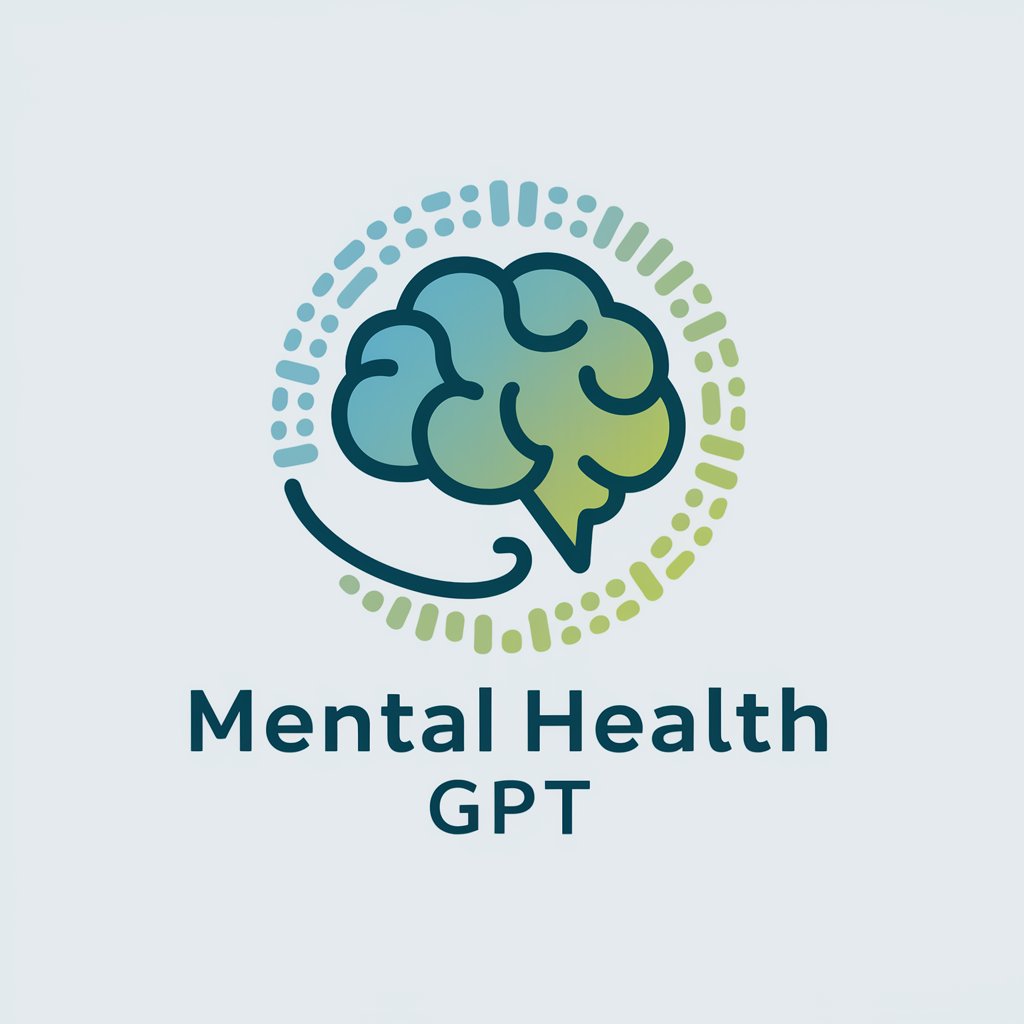
Prostate Cancer - Prostate Cancer Information

Welcome! I'm here to provide detailed information about prostate cancer.
Empowering knowledge on prostate health
What are the common risk factors for prostate cancer?
How does PSA testing work?
Can you explain the screening methods for prostate cancer?
What are the early signs and symptoms of prostate cancer?
Get Embed Code
Overview of Prostate Cancer GPT
The GPT named 'Prostate Cancer' is a specialized AI tool designed to provide comprehensive and detailed information about prostate cancer, a common and significant health concern among men, particularly as they age. This GPT is programmed to disseminate knowledge about various facets of prostate cancer including its risk factors, symptoms, diagnosis methods, and the significance of prostate-specific antigen (PSA) testing. By employing a user-friendly and accessible language, it aims to demystify medical jargon and complex concepts, making the information understandable to non-medical users. For instance, it can explain how lifestyle choices and genetics influence prostate cancer risk, or describe the procedure and implications of a PSA test. The design purpose is not only to educate but also to empower individuals with knowledge that can lead to early detection and informed conversations with healthcare professionals. Powered by ChatGPT-4o。

Core Functions of Prostate Cancer GPT
Educating on Risk Factors
Example
Explaining the impact of age, family history, race, and lifestyle on the likelihood of developing prostate cancer.
Scenario
A user without any medical background is curious about their risk of developing prostate cancer due to a family history of the disease. The GPT provides detailed information on how genetic predisposition increases risk and suggests proactive screening strategies.
Guidance on Screening Methods
Example
Detailing the process, benefits, and limitations of PSA testing and digital rectal exams (DRE).
Scenario
An individual considering prostate cancer screening seeks to understand the differences between PSA tests and DREs. The GPT offers insights into how each test is performed, their effectiveness in early detection, and what results might indicate, aiding in informed decision-making.
Information on Treatment Options
Example
Outlining various treatment pathways such as surgery, radiation therapy, hormone therapy, and the considerations for each.
Scenario
A user diagnosed with prostate cancer looks for information on available treatment options. The GPT explains the potential benefits, side effects, and what to expect from each treatment method, helping the user weigh their options.
Target User Groups for Prostate Cancer GPT
Individuals Seeking Prostate Cancer Information
Men who are at an increased risk of prostate cancer, individuals with a family history of the disease, or anyone interested in learning about prostate cancer prevention, screening, and treatment will find this GPT immensely useful. It serves as a preliminary source of information, encouraging informed discussions with healthcare providers.
Caregivers and Family Members
Family members or caregivers of individuals diagnosed with or at risk for prostate cancer who seek to understand the condition better, support their loved ones, and make informed healthcare decisions together.
Healthcare Students and Professionals
Medical, nursing, and allied health students, as well as professionals looking for a refresher or layman's explanations to better communicate complex prostate cancer information to patients and non-specialist colleagues.

How to Use the Prostate Cancer Information Tool
Start your journey
Begin by accessing yeschat.ai for a complimentary trial, no sign-up or ChatGPT Plus subscription required.
Identify your needs
Consider what you need: Are you seeking information on risk factors, screening methods, or PSA testing? Understanding your needs will guide your queries.
Ask your questions
Submit your questions through the provided interface. Be as specific as possible to receive the most accurate and relevant information.
Review the information
Carefully review the provided information for insights into prostate cancer. The content is designed to be comprehensive and understandable.
Use responsibly
Remember, this tool is for informational purposes only. Always consult a healthcare professional for medical advice or concerns.
Try other advanced and practical GPTs
ThesisGPT
AI-powered academic and research aid

Epidemiology & Public Health Advisor
Empowering Public Health Decisions with AI

Gaming Reviews
Empower Your Gaming Choices with AI

Gaming Review
Empowering Gamers with AI-Powered Insights

Racing Games Coach
Elevate Your Racing Game with AI Coaching

Quiz
Empower Your Knowledge with AI Quizzes

Remedy Navigator
Navigate Your Health with AI

Pet Behavior Decoder 😻🐕🧠
Deciphering pet behavior with AI precision.

Mental Health GPT
Empowering Your Mental Health Journey with AI

PropertyPal
Streamline Your Property Management with AI

Home Value
Estimate Your Home's Value with AI

Home Sustainability Advisor
Empowering Sustainable Living with AI

Frequently Asked Questions about Prostate Cancer Information Tool
What is PSA testing and its importance?
PSA testing measures the level of prostate-specific antigen in the blood, which can be an indicator of prostate cancer. Early detection through PSA testing can lead to timely and more effective treatment options.
Can this tool diagnose prostate cancer?
No, this tool provides information and insights about prostate cancer, including risk factors and screening methods, but it cannot diagnose conditions. Diagnosis should be done by a healthcare professional.
How accurate is the information provided?
The information is regularly updated and based on current medical research and guidelines. However, individual cases may vary, so professional consultation is recommended for personal health decisions.
Who can benefit from using this tool?
Anyone seeking to understand more about prostate cancer, including patients, caregivers, and those interested in prevention and early detection, can benefit from this tool.
How can I make the most out of this tool?
To optimize your experience, be specific with your queries, review all provided information, and use it as a basis for further discussion with your healthcare provider.





